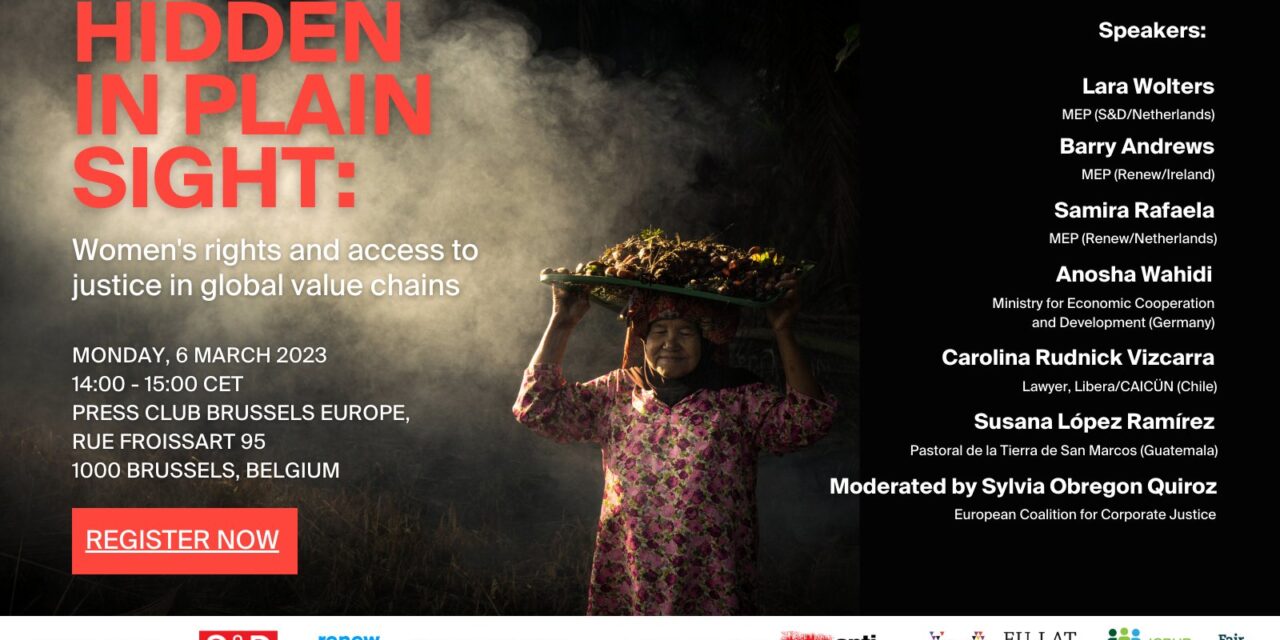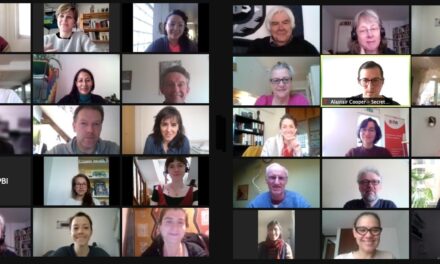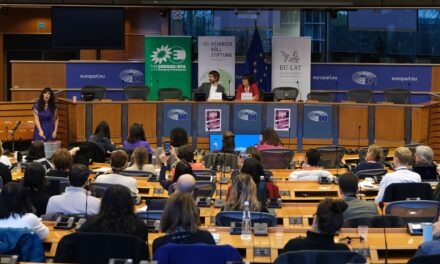“Good due diligence is by nature gender-sensitive” – MEP Lara Wolters.
On Monday March 6, the EU-LAT Network co-hosted the event ‘Hidden in Plain Sight – Women’s Rights and Access to Justice in Global Value Chains’, in cooperation with the European Coalition of Corporate Justice, ActionAid, Anti-Slavery International, the Irish Coalition for Business and Human Rights and the Fair Trade Advocacy Office. To strengthen this message on International Women’s Day 2023, a coalition of 140 organisations called for a gender-responsive Due Diligence legislation in an Open Letter to the EU.
Read the Open Letter here
The protection of women’s rights, corporate liability and access to justice from a gender perspective represent some of the key elements that remain invisible in many of the current the due diligence processes of international companies. Now, the EU has the opportunity to oblige companies to include women’s rights and access to justice in global value chains by means of its upcoming Corporate Sustainability Due Diligence Directive. Currently debated and voted in the European Parliament, which will be followed by EU trialogues, this Directive could reverse the subordinated role of women in company abuses, and restore the gender imbalance when it comes to the protection of women against human rights violations. In this event, experts from civil society, national and EU institutions explained the challenges women are facing in global value chains, how the EU represents a key actor in restoring this power imbalance on a global level and its obligation to do so, and how the upcoming directive should therefore include a strong gender perspective.
The speakers highlighted specific elements to be taken into account by European policymakers, such as:
- The gender impacts in corporate value chains impact women in a much-differentiated way, exemplified by data that shows that women are more likely to be impacted by forced labour, are more likely to be exposed to harm, threats and discrimination, especially with a sexual dimension, whilst having the least possibility to denounce or gain access to justice, among others. To make sure the gender perspective will be included in the entire value chain, all steps, companies, organizations and strategies should focus on how it affects women and their rights.
- The directive should strengthen access to justice for women by a mandatory legal framework that prevents structural discrimination and naturalization of gender-based inferiority, by establishing a good civil liability mechanism, reversal of the burden of proof, access to documents and lawyers, state support and legal aid and by allowing claims by organizations on behalf of others.
- The company scope of the Directive should be broadened, including upstream and downstream business relationships.
- The Directive should oblige companies to grant women full stakeholder engagement in all stages of the process, and fulfill a proper and informed consultation process. On the other hand, women should be granted access to inclusive complaints mechanisms.
- Purchasing practices should be made responsible, based on new legally binding framework of gender-inclusive criteria.
- Working conditions for women should improve by increasing living wages for women, linked to a better access to education, social security and health services.
- It is crucial to establish better transparency in mapping the full coverage of the value chain as well as a list of high risk sectors.
- More gender-disaggregated data is needed on the disproportionate way women are targeted when it comes to labor conditions, pay discrimination and emotional and physical violence, among other elements, to establish a more detailed and inclusive policy framework.





